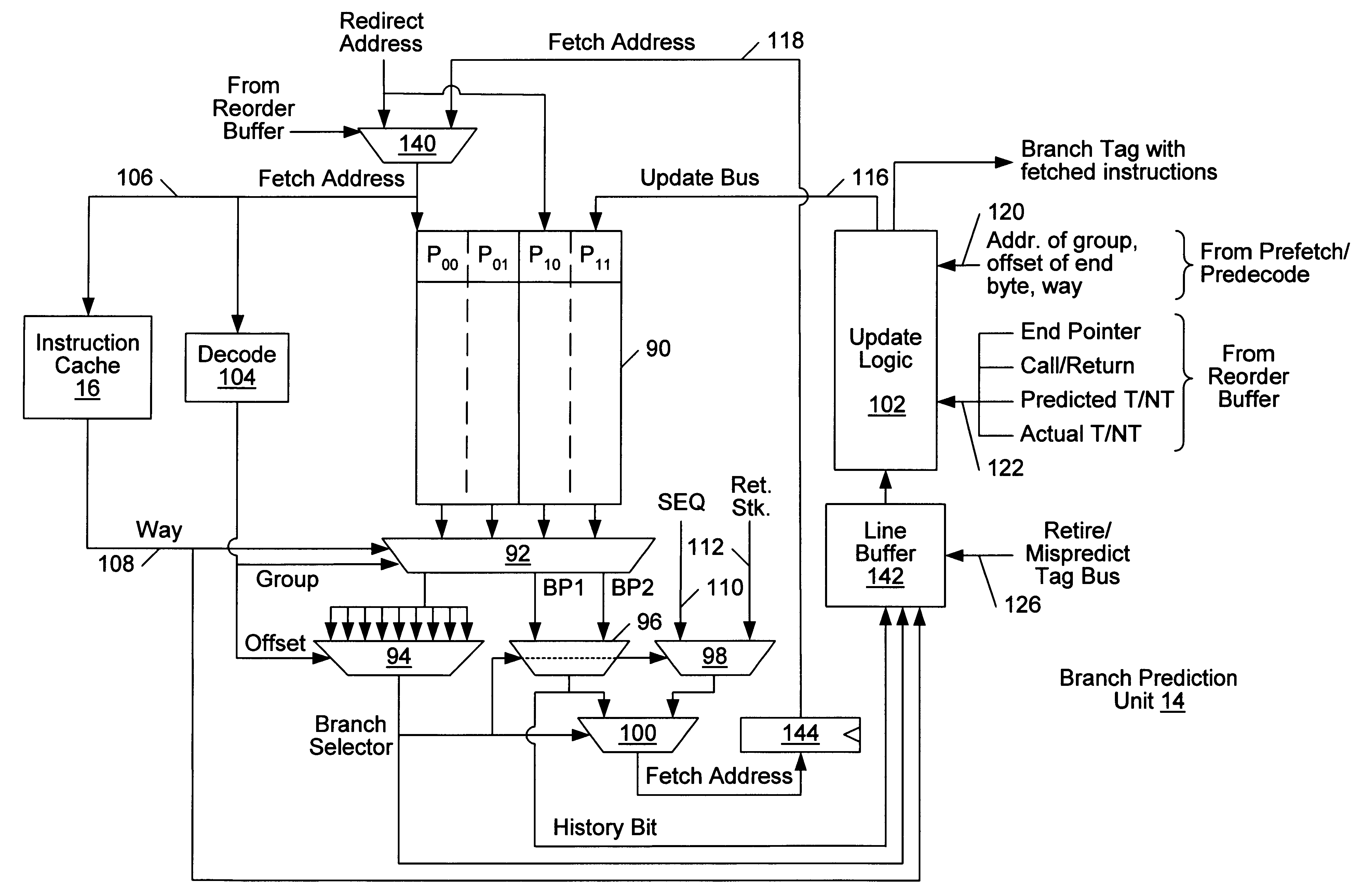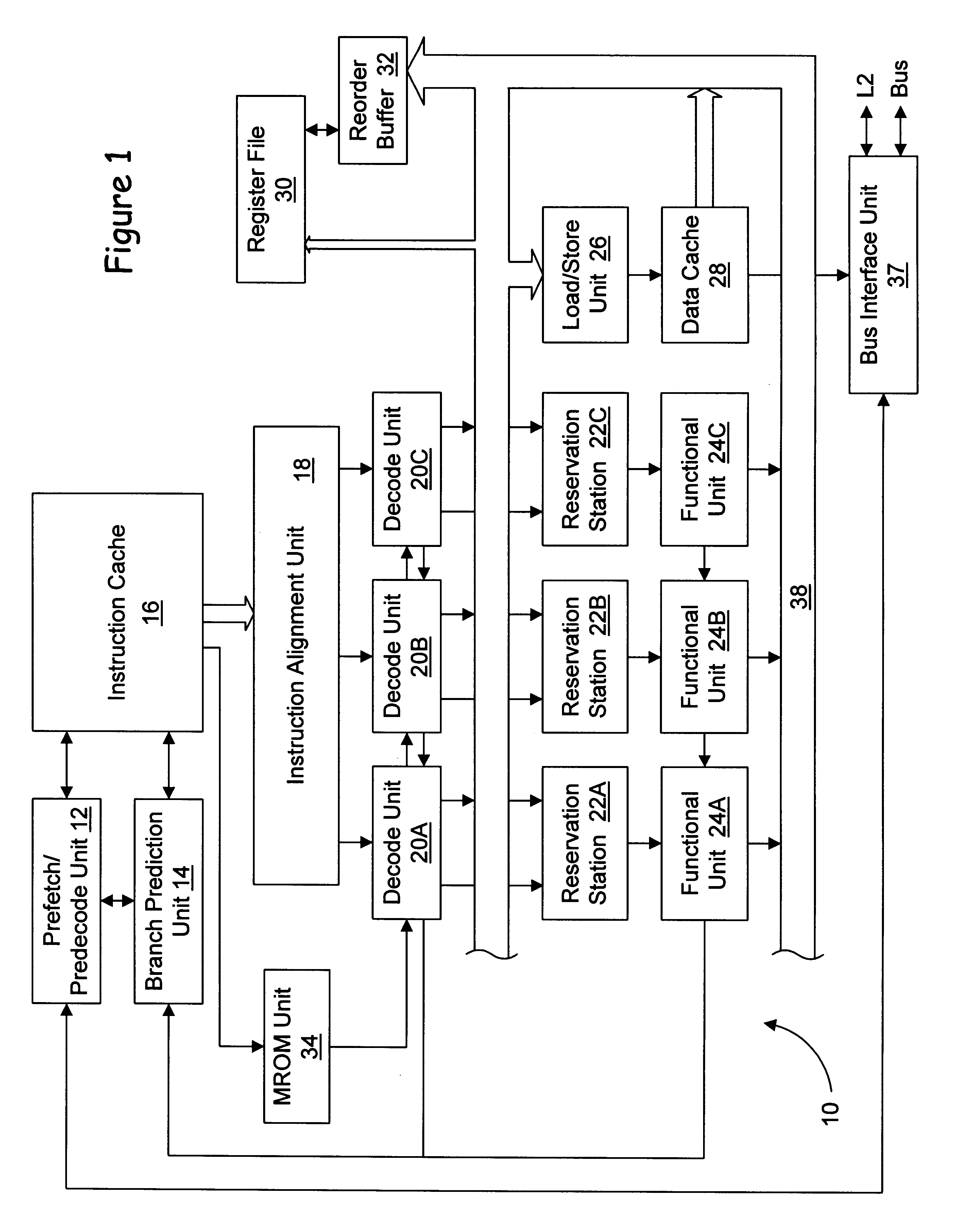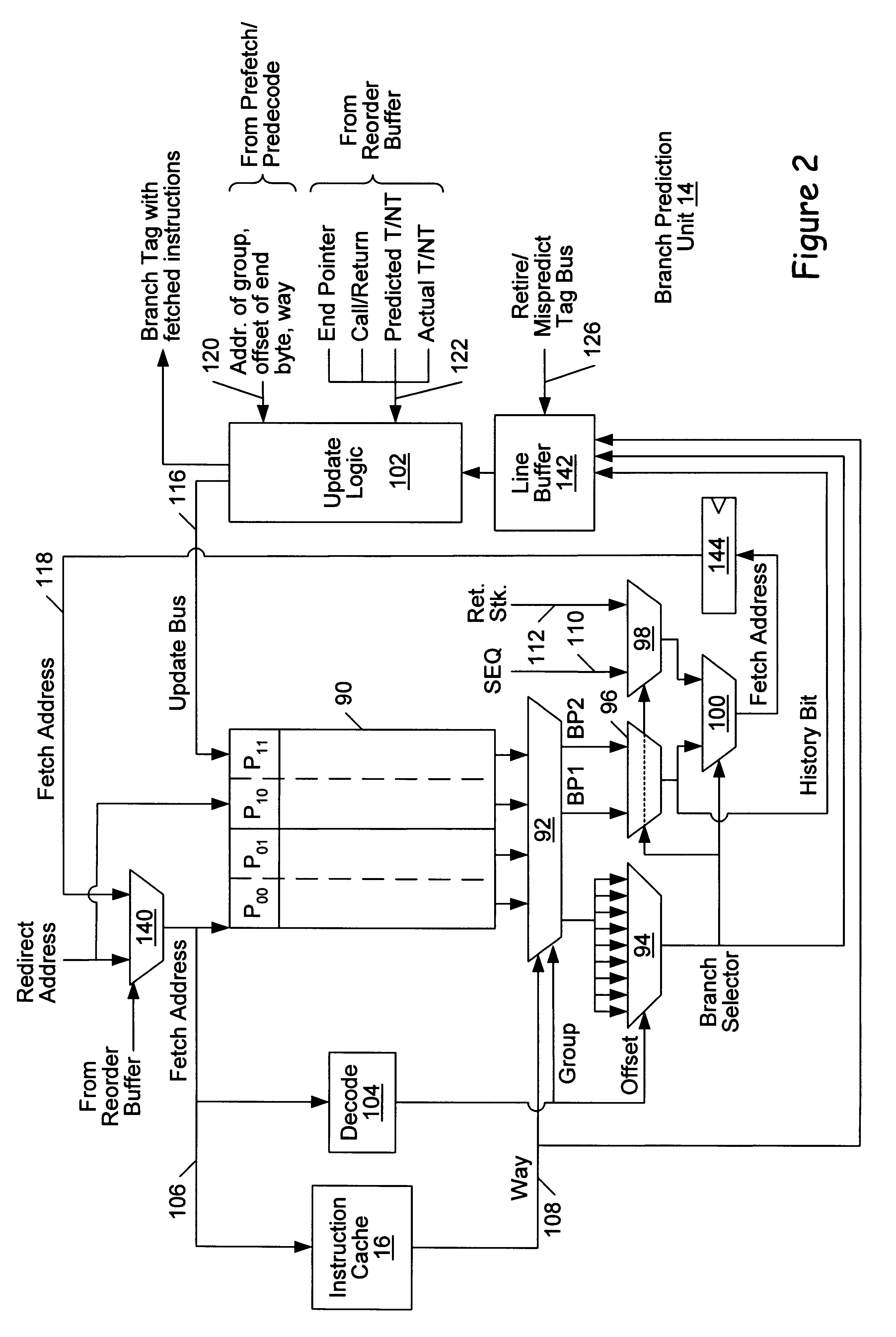Three state branch history using one bit in a branch prediction mechanism
a branch prediction and one-bit technology, applied in the field of microprocessors, can solve the problems of increasing the accuracy of predictions is typically poorer than, and the complexity of the branch prediction mechanism is increased
- Summary
- Abstract
- Description
- Claims
- Application Information
AI Technical Summary
Problems solved by technology
Method used
Image
Examples
Embodiment Construction
illustrates the use of the byte range including only byte 0 of a group of contiguous instruction bytes. Example 80 shows an instruction IN0 ending at byte "E" of a first group of contiguous instruction bytes, a predicted branch PB0 extended from byte "F" of the first group to byte 0 of a second group of contiguous instruction bytes which are sequential to the first group, and an instruction IN1 beginning at byte "1" of the second group.
Since branch instruction PB0 does not end until byte 0 of the second group, the second group needs to be fetched from instruction cache 16. Therefore, the branch selector corresponding to bytes "E" and "F" of the first group indicates sequential, thereby causing the second group to be fetched. The sequential fetch address includes an offset portion set to zero (since bytes immediately subsequent to the last bytes of the first group are being fetched). Therefore, the branch selector corresponding to byte "0" of the second group is selected. The branch ...
PUM
 Login to View More
Login to View More Abstract
Description
Claims
Application Information
 Login to View More
Login to View More - R&D
- Intellectual Property
- Life Sciences
- Materials
- Tech Scout
- Unparalleled Data Quality
- Higher Quality Content
- 60% Fewer Hallucinations
Browse by: Latest US Patents, China's latest patents, Technical Efficacy Thesaurus, Application Domain, Technology Topic, Popular Technical Reports.
© 2025 PatSnap. All rights reserved.Legal|Privacy policy|Modern Slavery Act Transparency Statement|Sitemap|About US| Contact US: help@patsnap.com



